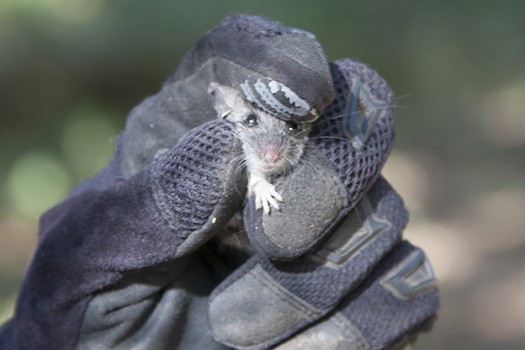Previous research investigated the tick-borne pathogens of nymph and adult blacklegged ticks in the Bay Area and confirmed that Lyme disease (as well as Borrelia miyamotoi) circulates among these tick populations. The big question with regards to Bay Area Borrelia ecology is now the determination of the primary Borrelia reservoir host(s). Reservoir hosts are animals that can maintain viable infections and are able to infect ticks with the bacterium. Understanding the role of the hosts offers potential public health opportunities.
Project Objectives
It is believed that the predominant reservoir host for B. burgdorferi in California is the western gray squirrel, but wood rats have also been implicated. We do not yet have any information on the reservoir host(s) for Borrelia miyamotoi in California. The goal of this study is to verify which animals are hosting the ticks and/or playing a role in the transmission of the bacteria.
Animals that will be investigated include squirrels, wood rats, chipmunks, and mice. Potential hosts will be determined due to the presence of Borrelia in blood or tissue. Any ticks feeding on the captured mammals will also be examined for infection.
Method
Trapping grids, consisting of humane temporary live-traps (animals will be released after examination) were located at 5-6 sites in the Bay Area with the highest known prevalence for Borrelia.
Blood and ear-tissue samples were taken and will be examined in laboratory using polymerase chain reaction (PCR) analysis. Borrelia strains will then be characterized by DNA sequencing.
Data will be adapted to simple ecological models that can represent and predict disease risk.
Lead researcher(s)
Dan Salkeld, PhD, Research Scientist, Woods Institute for the Environment, Stanford University & Nate Nieto, PhD, Lecturer, Northern Arizona University
Timeline
July – December 2014. Mammal collection was completed in early summer when infection prevalence should be at highest levels. Testing, data analysis, and ecological models are being developed fall 2014.
Learn more about ongoing ecology projects in Ecology of Lyme Disease.
For more information about this or other project funding opportunities, contact our Development Office.
